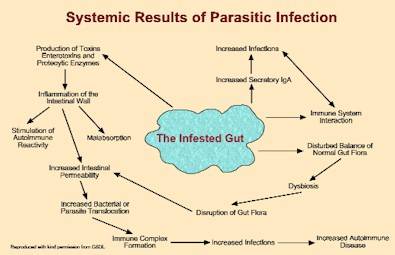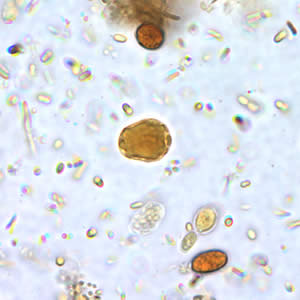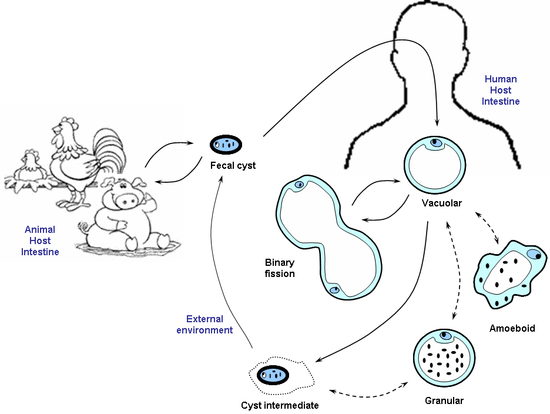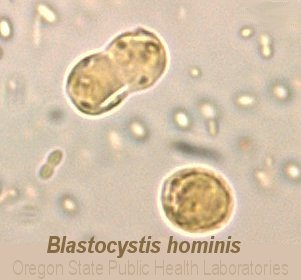Talk to any man about their health and you'll usually get "yep, all fine", or no response at all.
According to the
Australia's Health Report 2010, on average men rate their health better than what it actually is, and see a medical or health practitioner less than women.
Probably because of this, women are targeted more in health promotion and marketing, because they are more likely to seek out the assistance of a doctor or health practitioner earlier if a problem arises, or certainly in terms of preventative medicine. Mens' Health is often forgotten.....
While men are just as susceptible to chronic illnesses such as diabetes, hypertension, high cholesterol levels, and overweight/obesity, they also have specific andrological illness to keep an eye out for, such as enlarged prostate (ether benign or malignant), problems with bladder control, and of course sexual-related issues such as low libido, premature ejaculation, and impotence.

The biggest and most insidious problem of course lies in mental health - depression, anxiety, etc
Men don't talk about their health, or consider illness to be a big deal, in the same way, they also don't talk about how they feel. This can often impact on their relationships with their loved ones, and partner. Often, this can be a significant contributing factor in sexual dysfunctions, and of the inability to please lover further compounds a sense of low self-esteem and self-worth.

Whilst men have to deal with their own individual issues - physiological as well as emotional - they also are continually bombarded by mixed messages in the media about what it means to be male: competitive, fit, well-groomed, tall, muscular (the 'six-pack abdomen'), successful, dominant, and outgoing. These images are supported by celebrities who fit these images; all too often however, these 'role models' turn out to be less than perfect, getting in trouble with the law, treating women poorly, being involved in brutish and loutish behaviour, drunkenness and drug addictions. These archetypes seem to lack a core masculinity, and when men feel they are not meeting those expectations, this can also lead to very uniquely-male reactions to ideas around self-worth.
In Chinese Medicine, the inability to discuss how one feels is intimately linked with other more serious organic pathologies. This is called
yu: constraint or stagnation. When Qi does not flow through the channel system properly, it is unable to reach other parts of the body. This can lead to issues with digestion such as abdominal bloating, heartburn or reflux; or even to sexual dysfunctions, such as low libido, impotence, or premature ejaculation. Prostatitis is often the result of this stagnation, especially in the channels associated with the genitals, after many years of this lack of free-flow. Constraint of this sort is also intimately linked with poor mental health, manifesting as depression, low mood, and even disorders such as anxiety or panic attacks; the latter also being linked with serious heart disease and hypertension.

Acupuncture is particularly useful at promoting that free-flow of Qi throughout the body, ensuring that all the vital substances are able to reach the various parts of the body that they are required. Many men notice how they "feel" better after an acupuncture treatment, even if they are coming for something 'physical'. Once Qi flows better, men are able to 'feel' how they feel, and are more likely to be able to embody the type of honourable man they know they should be.
Herbal medicine is of course beneficial at rebalancing the internal landscape of the body, correcting imbalances amongst substances (such as hormones, fluids, blood, etc.) and providing the material basis for such energetic/emotional shifts. This can be accentuated by following an appropriate diet, and exercising appropriately. Yoga, Qigong, Taichi, Pilates, walking, etc are all useful ways of keeping the body fit, the mind sharp, and the emotions flowing.
Men need to be encouraged to fully perceive how they feel about themselves, and seek help earlier. Most serious chronic illnesses can be prevented if addressed early enough. It is perfectly 'manly' to seek help, and accept that sometimes we are vulnerable - this is part of being a mature and capable male.
 Considered pathogenic, this amoeba is a single-celled organism that constantly changes shape. It is pathogenic and can infect the intestines as well as other organs (via the blood-stream) such as the liver.
Considered pathogenic, this amoeba is a single-celled organism that constantly changes shape. It is pathogenic and can infect the intestines as well as other organs (via the blood-stream) such as the liver.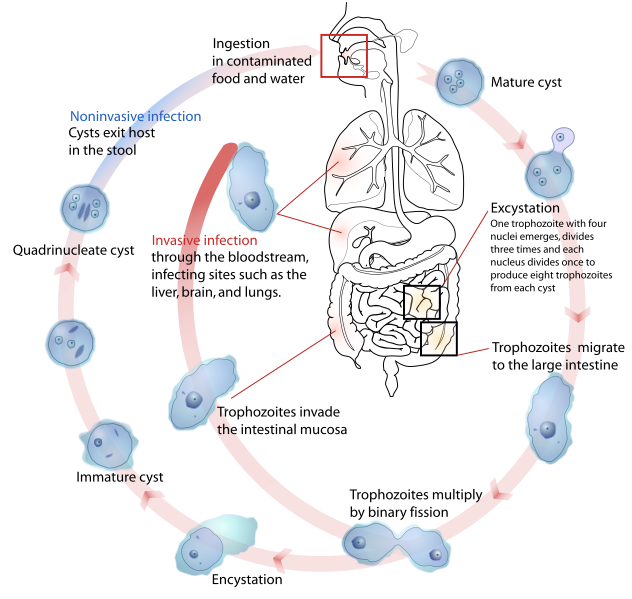 Symptoms include a gradual onset of abdominal pain, diarrhoea, weight loss, fatigue, and bloody stools. In severe cases, fever and dysentery can be found. When deposited into the liver, it causes amoebic liver abscess, which can be fatal if left untreated. it is not uncommon for Inflammatory Bowel Disease (IBD) to be diagnosed when actually, this little bug is the poblem.
Symptoms include a gradual onset of abdominal pain, diarrhoea, weight loss, fatigue, and bloody stools. In severe cases, fever and dysentery can be found. When deposited into the liver, it causes amoebic liver abscess, which can be fatal if left untreated. it is not uncommon for Inflammatory Bowel Disease (IBD) to be diagnosed when actually, this little bug is the poblem.
